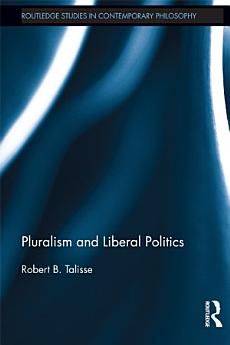Pluralism and Liberal Politics
Über dieses E-Book
According to this view, certain value conflicts are at present undecidable rather than intrinsic. Consequently, epistemic pluralism countenances the possibility that further argumentation, enhanced reflection, or the acquisition of more information could yield rational resolutions to the kinds of value conflicts that metaphysical pluralists deem irresolvable as such. Talisse’s epistemic pluralism hence prescribes a politics in which deep value conflicts are to be addressed by ongoing argumentation and free engagement among citizens; the epistemic pluralist thus sees liberal democracy is the proper political response to ongoing moral disagreement.
Autoren-Profil
Robert B. Talisse is Professor of Philosophy, Professor of Political Science, and Chair of the Department of Philosophy at Vanderbilt University. His research is focused on contemporary issues in liberalism and democratic theory. He is the author of Democracy After Liberalism (Routledge), A Pragmatist Philosophy of Democracy (Routledge) and Democracy and Moral Conflict (Cambridge). He is the editor of the journal Public Affairs Quarterly, and co-host of the popular podcast, New Books in Philosophy.







